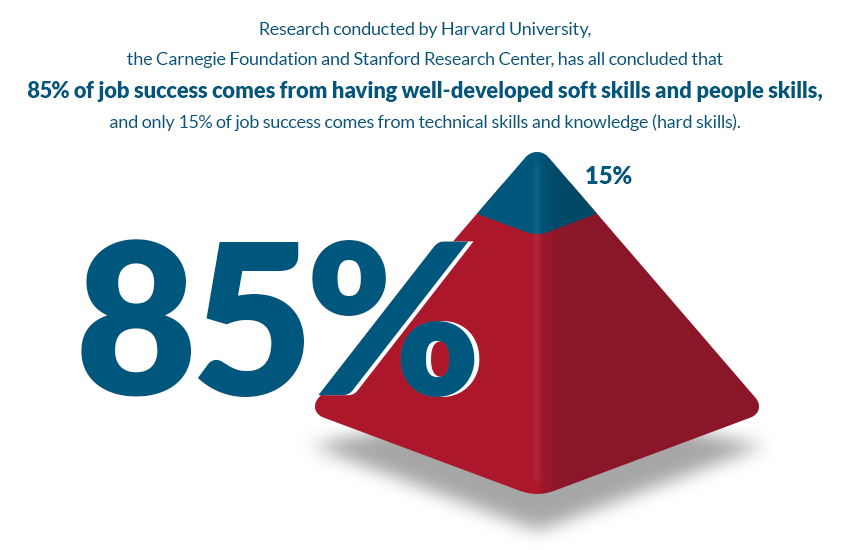
Recent research on students with disabilities was conducted by The Hechinger Report, a nonprofit, independent news organization, in partnership with the Huffington Post. The research focused on inequality and innovation in education, and recently issued their report on the plight of students with disabilities in post-secondary settings.
“About a third of the students with disabilities who enroll in a four-year college or university graduate within eight years. For those who enroll in two-year schools, the outcomes aren’t much better: 41 percent, according to federal data.”
The report goes on to say that these dismal outcomes are not because students with disabilities can’t handle the coursework, for most can grasp the academic content. What these students lack are the soft skills that will help them succeed in higher education and life.
What Are Soft Skills and Why Are They Important
Soft skills refers to a group of personal qualities that make a good student or employee, personal qualities such as a positive attitude, communication, planning and organizing, critical thinking, interpersonal skills and more. These soft skills enable one to critically think, plan and organize, communicate and get along with fellow students, faculty, employees and employers. Soft skills are far more important than pure academic and technical skills training for success in today’s society.

Soft Skills Have Been Ignored by Our Educational Institutions for 100 Years
It is important to note that research conducted by Harvard University, the Carnegie Foundation and Stanford Research Center has all concluded that 85% of job success comes from having well-developed soft and people skills, and only 15% of job success comes from technical skills and knowledge (hard skills). These statistics were extrapolated from A Study of Engineering Education, authored by Charles Riborg Mann and published in 1918 by the Carnegie Foundation. This is not a typo—it was 1918—and for nearly 100 years our educational institutions have ignored the key elements for personal, educational and workplace success and have insisted on teaching academic and technical skills over soft skills. (Source: National Soft Skills Association)

Regular Education Students vs. Special Education Students
It is important to note that Mann’s research was focused on college and university engineering students. These students might be considered quite capable of handling the academic rigors of an engineering program, but they were never taught the soft skills necessary for success in their chosen engineering field. In the case of special education students, the need for soft skills training is multiplied many times over. Typically, these students struggle in the area of social and emotional development, which is the foundation for all soft skills development. Clearly our special education programs need to stop focusing all of their efforts on academics for the sake of academics. We need to include soft skills training to provide the keys to future success for all students, with or without disabilities.
The Call for Soft Skills Training in Transition Programs for Special Education Students
Under the current special education law, Individuals with Disabilities Education Act (IDEA), there is a requirement for all special education programs to address the transition process from high school to post-secondary education or training. A transition plan is to be in place by the age of 16; in fact, in many states it is now by the age of 14. The federal law requires schools to create individual education programs that include goals, along with a plan to support the learning needs of special education students in order to achieve their post-secondary goals. Research shows that, in most cases, there are no goals set and no plan at all to support students in non-academic areas, including the development of soft skills.

It is time that our educational institutions wake up to the fact that post-secondary success for all students, not just students with disabilities, must include soft skills assessment and training as well as academic assessment and training.
As one parent in the Hechinger Report states, ”It’s a crisis, our kids are graduating to the couch.”
